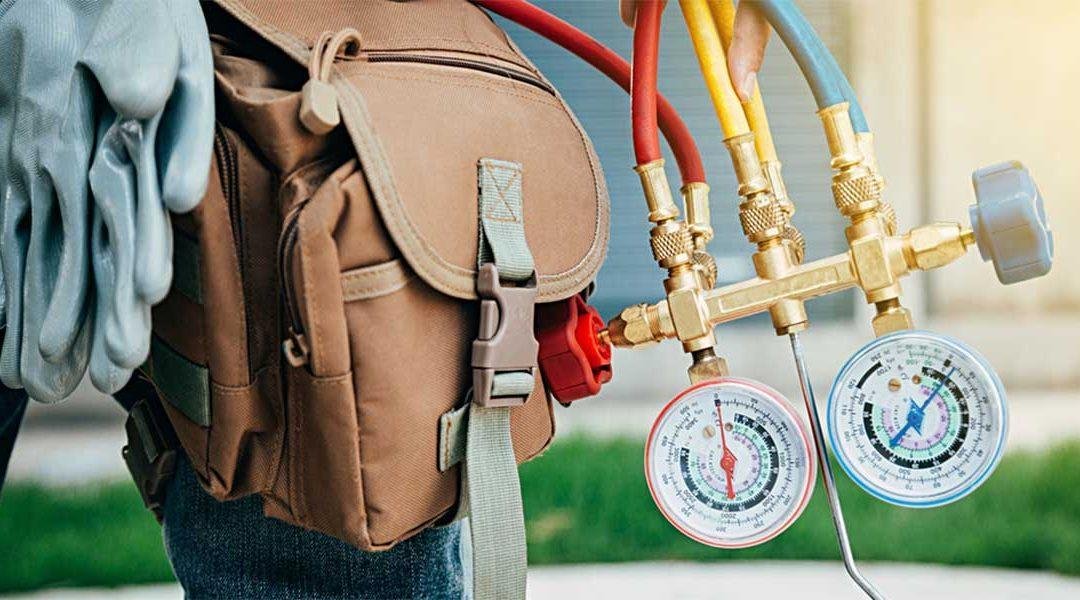There are few things worse than coming home on a hot summer’s day to an air conditioner that’s on the fritz. To help your unit do its job this summer—so you can keep your cool—follow these DIY HVAC maintenance tips:
Change Your Filter
Air conditioners circulate cooled air through your home via ductwork. Before it gets to those ducts, the air passes through a filter—or tries to, anyway. If you don’t regularly replace your filter, it’ll become clogged with dirt and dust. At best, that will decrease the unit’s efficiency; at worst, a dirty filter can actually cause your air conditioning system to fail.
What filter you use matters, too. When choosing a replacement, consider the following:
- Size. Be sure to choose the correct size for your system. If there are no numbers printed on your current filter, measure the height, width, and depth yourself, and find a matching one at your local home improvement store.
- MERV rating. The minimum efficiency reporting value (MERV) indicates a filter’s effectiveness. As you might expect, filters with higher MERV ratings are higher quality. That doesn’t mean you should necessarily default to the highest MERV. In fact, using a higher MERV rating than your system is built for can cause the blower to work too hard.
- Material. HVAC filters are typically made from one of four materials (in MERV order from lowest to highest): spun fiberglass, pleated polyester or cotton fabric, or glass fibers.
- Allergies. Allergy sufferers may benefit from using High Efficiency Particulate Arrestance (HEPA) filters. Made from glass fibers and an activated carbon material, HEPA filters are incredibly effective at knocking down dust, pollen, mold spores, and more. However, these filters are thick, and many furnaces aren’t equipped to pull air through them.
Clean Your Condenser and Compressor
The exterior parts of your air conditioning system are the condenser and compressor. We’ll explain how they work another time; for now, the lesson is simply keep them clean.
- Turn off the power to the unit at the breaker box before doing any maintenance on your HVAC system.
- Carefully remove the “cage” from the top of the unit. You’ll probably need a screwdriver.
- Remove any debris that’s fallen inside the unit—leaves, sticks, snakes, and so on.
- Vacuum dirt away from the fins. A good shop vac with a brush attachment is a great tool for this job.
- Using a garden hose—not a pressure washer—spray the fins from the inside to the outside of the unit.
- Gently straighten any fins that have gotten bent or pinched. Reduced air flow means reduced efficiency which creates wear and tear on your system. Although you can buy special tools made for this purpose, a butter knife will do fine.
- Clean around the outside of the unit, cutting back hedges and weeds that might restrict airflow.
Clean the Evaporator Coil and Drain
We don’t pay much attention to our air conditioning units, so they tend to get gunked up. At least annually, you should attend to two interior parts of your system:
- Evaporator Coil. On your furnace, locate the evaporator coil door and open it. Carefully remove dust using a soft brush, then clean it with an appropriate coil cleaner from your home improvement store.
- Evaporator Drain. As you’re working on the evaporator coil, if you notice the cleaner not draining away quickly, you may have a clogged drain tube. Use a wet/dry vac to remove any debris or algae build-up from the end of the tube that’s farthest away from your HVAC unit.
Check Your Thermostat
HVAC units can get cranky simply from overuse. So, if you have a programmable thermostat and a predictable schedule, give your unit a break while you’re out of the house.
Have Your Unit Serviced By a Pro
Our experienced Abel Air Services HVAC experts can detect potential problems long before they begin. You’ll save money in the long run by having your unit inspected and serviced before temperatures start rising.
You don’t have to study your birthday meaning to realize how Abel Air Services can save you lots of money.


